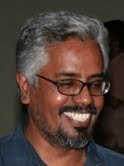Departure of a Master

C Raghavan - A Translator par excellence
C
C Raghavan, one of the finest multilingual translators from Keralam, died on 20th February 2010 at Kasargod. He was 79. Raghavan ‘Master’, as he was fondly called, was a very lively presence in the cultural scene of Tulunad, and was an integral part of all the progressive social and literary movements in the region during the last several decades. His contributions as a teacher, writer, historian and translator have inspired and shaped a generation of literary enthusiasts, writers and students.
A true polyglot, he was at ease with several languages. He was an expert in Tulu, Kannada and Malayalam languages and was very well at ease with Tamil and English. Raghavan Master was one of those rare translators who could translate from and into more than one source and target languages. He translated a number of notable literary works from and into Malayalam and Kannada, and has ‘literally’ been an ambassador between the two languages.
Throughout his life he lived in Kasargod or Tulunad, as he would describe it, which is a virtual confluence or melting pot of cultures- Tulu, Kannada, Malayalam, Konkani and English. In more than one way he was the son of Tulunad, and his magnum opus is about it. His book ‘Tulu Language, Society, Culture’, is an encyclopedic work and the result of decades of research - a unique one of its kind that delves into the diversities and confluences that define Tulu culture.
Soon after graduation, he got a government job in
It was the translation of the Kannada novel Chirasmarana by Niranjana, based on the lives of the communist revolutionaries and martyrs of Kayyur, that brought Raghavan into the limelight. According to Niranjana, when Chirasmarana was originally published in Kannada, it did not receive the attention it deserved but it was the Malayalam translation that gave it a new lease of life. In the coming decades Raghavan translated several celebrated works from Kannada like Bharatipura, Divyam, and Avasthe by UR Anantamurthy, Chidambara Rahasyam by Poornachandra Tejaswi, Kulothe Chinkaramma by Chandrasekhara Kambar Baduku by Geeta Nagabhushan (which received Sahitya Akademi Award for translation), and other noted works of masters like Masti and Bendre. Another master work of his is the translation of the Kannada epic Pampa Ramayanam.
Raghavan Master was also instrumental in bringing several authors into limelight. For instance, the novels of Sara Abubacker, a writer living in Kerala and writing in Kannada, became popular through his translations. Similar was the case with writers like Boluvar Muhammedkunji and Fakir Muhammed Katpadi. He also introduced to Malayalee readers the poetry, plays and writings of another polyglot and scholar of his region, Manjeswaram Govinda Pai.
Some of the major works he translated from Malayalam to Kannada include O Chandu Menon’s Indulekha, which received Kendra Sahitya Akademi award in 1998, Kesavadev’s Odayil Ninnu, MT Vasudevan Nair’s celebrated novel Randamoozham, Sukumar Azhikode’s philosophical treatise Tatvamasi and a selection of poems by Ayyappa Panicker. He also wrote the biographies of Malayalam writers like Thakazhi Sivasankara Pillai and Vaikom Muhammed Basheer in Kannada.
For him, translation was not a technical or literary affair. While introducing the best of works in one culture to another, it should also engage them in a cultural dialogue with each other. Taking up this cultural mission, Raghavan Master always selected works that dealt with the oppressed and the marginalized sections in these societies. According to him, translation was not just ‘bhashantara’ (language to language) but was also ‘bhavantara’ (emotion to emotion) and a tool for fostering deeper understanding and fresh synergy between cultures. And what distinguishes his translations is such complex and sensitive understanding of culture.
C Raghavan was one of the last among a generation of great translators in Malayalam that includes stalwarts like Nalappatt Narayana Menon, Ani Thayyil, P Madhavan Pillai, MN Sathyarthi and Ravivarma, for whom translation was a mission. While the entire Tulunad mourns his demise, the writers and readers in Kannada and Malayalam will deeply miss his warm, gentle and stimulating presence.
Labels: malayalam cinema


0 Comments:
Post a Comment
Subscribe to Post Comments [Atom]
<< Home